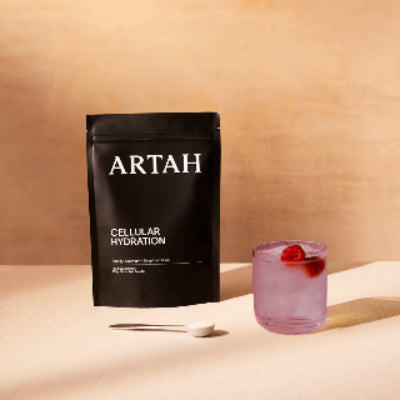Our metabolism has an intrinsic connection to the environment.
Just like food is information for our bodies, so are sunlight and temperature, which is why sleep, mood, blood sugar, fat storage, appetite control, and energy production are all influenced by seasonal changes. Felt a sudden change in the last few weeks? We have, too. Here’s what you need to know (and do) in order to flex your routine for autumn.
WE BECOME MORE INSULIN RESISTANT
One of the first adaptations to occur as the months get colder is how we produce and respond to insulin. We naturally become more resistant to insulin – which means blood sugar control, appetite regulation, and weight maintenance can all become more challenging. In addition, the body needs to work harder to keep warm, so suddenly feeling ravenous when the weather shifts is completely normal.
WHAT TO DO:
- Start replacing lighter, colder, salads with cooked and nourishing foods. Dahl and hearty soups are perfect transitional meals.
- Be mindful of sugar. Although you may start craving it more, you’ll be less equipped to combat its effects. If you’re craving more carbs, try including more root vegetables or brown rice to make your meals more satisfying.
- Up your protein and fat for breakfast. Keeping blood sugar balanced in the morning will influence your metabolism all day.
- Start doing HIIT. Autumn is a great time to do high intensity workouts to help with insulin sensitivity and combat a sudden increase in the propensity to store fat.
- Support blood sugar naturally: try Metabolic Fix, which has Chromium to support health blood sugar levels and macronutrient metabolism.
OUR SEROTONIN FALLS
Serotonin is one of the most important neurotransmitters for mood and is strongly influenced by the light exposure. Whilst it’s probably best known for its influence over our mood, it's also involved in sleep patterns, appetite control, and metabolism. In some, decreases in sun exposure may only cause subtle changes in mood and energy, but for others, it can trigger a more depressive seasonal pattern like SAD. The dreaded short days of winter are still a few months away, but there’s already been a significant change in daylight – we've lost over 2 hours since last month, and that’s not including the change in weather.
WHAT TO DO:
- Get daylight first thing in the morning. Studies have shown that getting exposed to bright light first thing in the morning leads to lower blood sugar, weight, anxiety, and less depressive behaviors. If you are someone who really struggles with seasonal changes, it’s worth investing in a light box.
- Go for frequent walks. Whether you’re working from home or in the office full time, taking a quick walk every 2 hours or so will not only increase your exposure to natural light, but it can also boost serotonin, reduce stress, and boost productivity.
- Keep up your cardio. Whilst HIIT can be great for fat storage, aerobic exercise still reigns supreme when it comes to serotonin production.
- Prioritise sleep hygiene. Always easier said than done, but avoiding evening screens becomes even more important in the winter because of their effect on sleep quality.
VITAMIN D LEVELS DROP
Vitamin D - which is actually more like a steroid – has receptor sites in virtually all of our cells, which is why it’s important for everything from immunity, hormone balance, and cancer prevention, to mood, skin quality, and sexual health. We can get small amounts from animal foods like trout, liver, and sardines, but our main source of Vitamin D is sunlight, which is why it’s recommended that everyone supplements with Vitamin D3 from autumn until spring. Because of how important it is in prevention, immunity, and metabolic wellness, supplementing with Essential D3/K2 from autumn is probably one of the most powerful ways to optimise your health.
WHAT TO DO:
- Supplement with Essential D3/K2 throughout the autumn and winter months.


















































